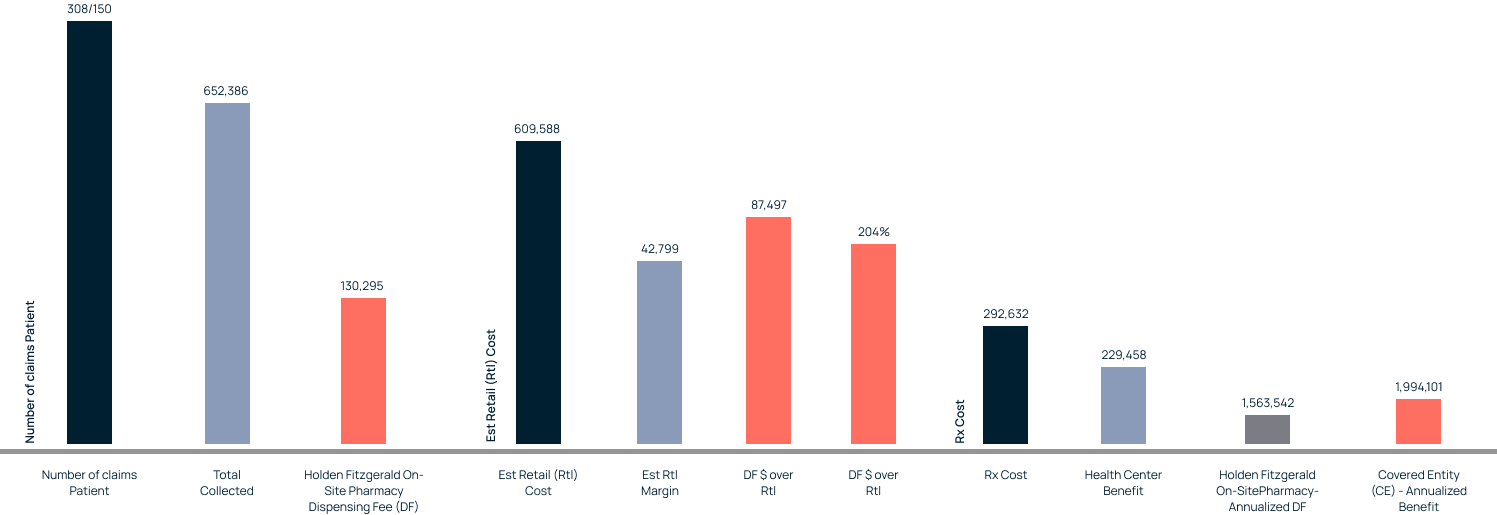Success Stories
Case Study 1
The Challenge
When a Community Health Center covering 12 counties lost its lease in 2021, the clinic’s leadership team decided to build their own facility. To better serve their more than 3,500 patients, their plans for the new space included exploring ownership of an integrated pharmacy that would offer convenient access to specially trained pharmacists and an ability to provide comprehensive care for their patients.
Community Health Center
CHC sought a pharmacy management partner that could offer robust and easy-to-use solutions to deliver exceptional customer service, provide integration of medical and pharmacy information for patients and providers, and optimize their quality of care. Data transparency and improved financial performance were high on the list of priorities.
Results and Future Plans
The capture rate for specialty medications has increased to 80% and for other prescriptions to 50%, despite the pandemic. Perhaps the most noteworthy, patient satisfaction ratings for the pharmacy are at 99%.
The health center’s future plans with Holden Fitzgerald include the ability to dispense prescriptions in satellite
locations, a program to efficiently receive and deliver HIV and prep injectables, and the possible addition of a clinical pharmacist to support complex cases, educate patients, and reconcile medications.
Pharmacy Management & Staffing
Screened candidates to ensure they were a good cultural fit for the mission.
Hired a patient care coordinator dedicated to adherence and billing issues.
Recruited well-trained pharmacists and techs.
Integrated the pharmacy system into the clinical EMR to improve patient care.
Manage quality control and personnel.
Provide marketing assistance and tech support.
Data Transparency & Reporting
Generate quarterly business reports detailing pharmacy and provider utilization, patient satisfaction, adherence rates, gaps in medication pick-ups, and other UDS metrics.
Deliver on-demand data to support growth, such as grant-writing and improved capture rates.
Conduct monthly performance calls
Provide full data transparency to ensure CBWF compliance, improved financial performance, and increased provider
utilization.
Patient Services
Championed a culture of personal service with an emphasis on family, diversity, and community.
Developed a 12-county hand-delivery program to assist constituents who lacked transportation.
Kept pharmacy operable during the pandemic with live phone service, mail delivery, and curbside pickup.
Custom Projects
Designed an automated system and point-of-sale accounts to alleviate the cumbersome oversight of the PAP program.
Increases efficiency of receipt and delivery of physician administered drugs including: gel, infusions and injectables.
Custom Projects

Community Health Center and Holden Fitzgerald On-site Program
Community Health Center Projected 3-year Funding Increase $10.7 million
previously receiving less than $1 million in savings from their international pharmacy partner and management firm
Case Study 2
The Challenge
City Hospital that faced challenges when it came to providing care for individuals living with HIV/AIDS. The hospital had limited resources and struggled to offer patients the comprehensive care they needed.
The Solution
Holden Fitzgerald created a specialty network for infectious disease and was able to bring the sole private infectious disease provider into a professional service agreement to run their program.
The private practice served 150 individuals living with HIV/AIDS who were enrolled in a case management program with a national program that was enriching itself with a specialty pharmacy program outside of the community and driving these much needed funds out of the community.
Through this partnership, the hospital was able to participate in the 340B drug pricing program for this patient population, which allowed them to purchase certain medications at a discounted price.
Results and Future Plans
This partnership resulted in approximately $2 million dollars a year in PAP savings for the hospital.
With this newfound funding, the hospital was able to build a specialty pharmacy that offered HIV/AIDS medications and medications for other chronic illnesses.
Additionally, the hospital was able to create community programs aimed at providing education and support for individuals living with HIV/AIDS.
The hospital’s new pharmacy and community programs were a huge success.
Not only were patients receiving better care, but the hospital’s community outreach efforts helped to raise awareness about HIV/AIDS and reduce the stigma associated with the disease.
Overall, the partnership between the City Hospital and the private practice was a shining example of how collaboration and innovation can make a significant impact on the health and well-being of a community.
The City Hospital is now working with Holden Fitzgerald to develop a telemedicine program for PEP and PrEP along with a mobile unit for primary care to reach beyond the local vicinity.
Case Study 3
The Challenge
A large national health system had grown their Statutory Health Insurance (SHI) program to 76,000 members while not having the ability to utilize there own in-house specialty pharmacy to deploy outpatient and physician administered services.
The Solution
Faced with this challenge in developing a program that could effectively capture and manage the pharmacy claims Holden Fitzgerald stepped in and created a customized program that provide a rebegotiation of their contractual relationship with prevailing managed care contracts, redirected wholesale through a new supply chain relationships and removed the buy and bill process by transitioning gels, infusion and injectable medication to the pharmacy benefit that was now administered by the health system and successfully captured 180,000 claims producing an average net margin of $120 per claim in the first year of the program.
Results and Future Plans
As a result of this program, the health system was able to achieve 21.6 million dollars in total net savings in the first year alone while also generating 4.5 million dollars in gross dispensing and administrative fees for their in-house specialty pharmacy.
Their in-house pharmacies system wide now have a total 3 year projection of 26.8 million in savings for their health system and most importantly a significant reserve to provide full patient assistance programs beyond approved manufacturer mandates.

